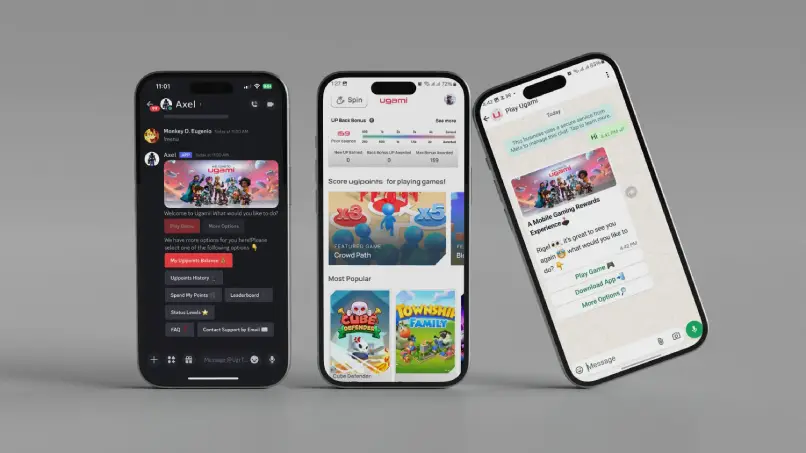Why Play-to-Earn Rewards Are Changing the Method You Play and Earn
The introduction of play-to-earn versions indicates a notable change in the gaming landscape, welcoming players to discover not just the amusement worth of games but additionally their possible as income-generating systems. Understanding these dynamics elevates relevant questions concerning the future of pc gaming and the effects for both gamers and programmers alike.
Emergence of Play-to-Earn Designs
In the last few years, the gaming industry has seen a substantial improvement with the introduction of play-to-earn models, essentially altering how gamers involve with digital settings. This innovative method permits gamers to obtain substantial incentives with their in-game tasks, producing a change from conventional gaming standards where pleasure and competition were the main motivations.
Play-to-earn versions leverage blockchain technology and non-fungible tokens (NFTs) to supply players with ownership of in-game properties, which can be traded or cost real-world money. As a result, gamers are incentivized to invest time and initiative into games, promoting a sense of firm and financial possibility. play to earn rewards. This shift has brought in a varied player base, consisting of those that might have formerly checked out gaming as a purely leisure activity
Several platforms have arised, showcasing successful applications of this design, such as Axie Infinity and Decentraland. These systems have not just generated considerable revenue but additionally sparked discussions around the sustainability and principles of such economic systems. As play-to-earn models remain to progress, they guarantee to redefine the partnership in between players, developers, and the wider digital economy, leading the way for a new age in gaming.
Benefits for Players
As gamers involve with play-to-earn models, they unlock an array of benefits that expand past mere home entertainment. Unlike typical gaming, where players invest time and money without substantial returns, play-to-earn systems permit players to make copyright or in-game possessions that can be transformed to real-world value.
Furthermore, play-to-earn models advertise area building amongst gamers. Players usually collaborate to achieve common objectives, thereby growing social connections that enrich the total experience. This sense of area can lead to participating gameplay, where gamers share strategies and resources, improving both personal and group success.
Additionally, these versions can democratize accessibility to pc gaming by allowing players from diverse economic backgrounds to profit economically. By joining play-to-earn ecosystems, people can gain skills and expertise about blockchain technology, additional broadening their job opportunities in the blossoming digital economic climate. Ultimately, the benefits for players prolong well past gameplay, affecting their social, economic, and academic landscapes positively.
Challenges in the Environment
While the play-to-earn community offers considerable This Site opportunities, it is not without its difficulties. Fluctuations in worth can discourage potential gamers that look for secure revenue streams.
Another challenge is the risk of frauds and deceptive systems that can afflict the ecological community. Players may run into misleading platforms guaranteeing high incentives but ultimately bring about monetary loss. Ensuring depend on and safety is critical for the long-term stability of play-to-earn models.
Furthermore, the ecological effect of blockchain gaming can not be neglected. The energy usage related to mining and transaction handling elevates ethical inquiries about sustainability. Game programmers need to discover a balance in between satisfying gamers and decreasing ecological impacts.
Lastly, the regulatory landscape is still advancing, posing possible risks for designers and players alike. Uncertain lawful structures can prevent technology and limit the growth of play-to-earn communities. Attending to these difficulties is important for realizing the complete potential of this transformative gaming standard.
The Duty of Blockchain Technology
Blockchain modern technology serves as the foundation of the play-to-earn ecosystem, resolving a lot of the challenges previously detailed. By using decentralized journals, blockchain makes certain transparency and protection in purchases. Gamers can with confidence make and trade in-game possessions, understanding that ownership is verifiable and exempt to adjustment.

Tokenization of assets plays an important role, granting gamers true possession of their in-game items, which can be gotten, sold, or traded on my latest blog post different marketplaces. This urges a lively secondary market, where players can monetize their abilities and time spent in the game.
Additionally, blockchain innovation makes it possible for interoperability between various video games and platforms, enabling gamers to lug their possessions throughout various environments. This adaptability not only improves customer experience yet also advertises a more inclusive video gaming setting, ultimately improving the landscape of gaming and earning.
Future Patterns in Pc Gaming
The gaming market gets on the brink of a transformative advancement, driven by emerging innovations and changing gamer expectations. As play-to-earn versions gain traction, players are increasingly seeking immersive experiences that mix amusement with tangible incentives. This shift is triggering programmers to innovate, concentrating on developing engaging gameplay that promotes area and interaction.
One significant fad is the integration of virtual truth (VIRTUAL REALITY) that site and increased fact (AR), improving the video gaming experience by providing deeper immersion and interactive atmospheres. Furthermore, advancements in expert system are making it possible for more sophisticated non-player characters (NPCs) and flexible gameplay, tailoring experiences to individual player preferences.

Conclusion
To conclude, the play-to-earn version is dramatically changing the video gaming landscape by enabling gamers to obtain real-world value from their in-game activities. This paradigm change not only enhances player involvement and financial investment however also elevates difficulties that should be addressed to make certain sustainability within the environment. As blockchain innovation proceeds to assist in ownership of electronic possessions, the future of gaming assures additional innovation and possibilities for players throughout varied backgrounds.